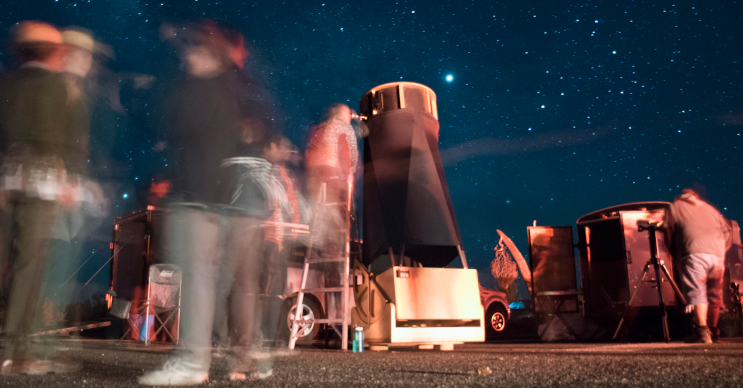Archives
June 2024
Categories
All
|
Back to Blog
Dark-sky tourism is on the rise1/4/2022 750 words / 3-minute read
People pursue dark skies for many reasons. For some, it's about protecting the nighttime environment for wildlife. For others, saving energy and reducing greenhouse gas emissions is important. But in recent years, dark skies has come to mean something else important to many people: their way of earning a living. "Astrotourism" is an unfamiliar word to many because the idea behind it is still new. It is an unusual type of tourism in which people travel to dark locations to view and enjoy the night sky. Along with the rise of the dark-sky movement in general, astrotourism is quickly gaining an audience. Consider some of these news headlines of the past year: The Amazing Race To Space: Why ‘Astrotourism’ Is The Current Buzz Word For The Travel Industry Seeing the Stars: Small Towns and Rural Parks Pursue Dark Sky Goals Dark skies offer a new travel frontier, and perspective in our own dark days Astro-Tourism is the Next Big Travel Trend Dark sky tourism is on the rise across the U.S. A dark-sky adventure awaits What is so appealing about this new kind of 'adventure tourism'? For many, it is the chance to experience something brand new to them, particularly those who live in light-polluted cities. Astrotourism means a quiet night under the stars, reconnecting with nature. It stokes a sense of curiosity about the universe, and brings participants closer to the sights and sounds of the natural night. It's also big business. According to a 2019 study, one dark-sky region in the western U.S. alone may see astroutourism revenues of nearly $6 billion in the 2020s. In other places, it is such a new idea that no one can yet estimate its value. But many agree that astrotourism is a growth industry. Nighttime tourism has an outsized economic impact compared to other, more traditional forms of tourism. Unlike most tourists, astrotourists can't simply "drive through" dark skies in a day. The nature of their activity requires an overnight stay. This creates opportunities for other businesses, such as resorts and restaurants, to add value to their visits. And it complements daytime tourism in traditional venues like national parks, with the reminder that "Half The Park Is After Dark". Fair tourism development for a post-COVID world As the global COVID-19 pandemic continues to curtail plans for many people, they look ahead to resuming their travels. Tourism professionals expect that post-COVID tourists will prefer new, exciting and unconventional experiences. Some will find that astrotourism fits the bill nicely, and they are willing to spend big to visit the world's darker places. But there are concerns about how to develop this industry in a way that is fair and sustainable. Because astrotourism focuses on rural and often underdeveloped places, it is crucial to include locals in tourism enterprises. This is especially true in places where the local economy was based on extractive activities in the past. As industries such as mining and logging leave, locals are left with many fewer opportunities to earn a good living. We already have some examples of success. For instance, native people operate lodges in the !Ae!Hai Kalahari Heritage Park of South Africa, which the International Dark-Sky Associated designated an International Dark Sky Sanctuary in 2019. Their revenues are making a difference in the nearby ‡Khomani San and Mier communities. Done right, this outcome is a win-win proposition for locals and tourists alike. Keeping skies dark for tourists of the future At the same time, this sense of endless economic promise is balanced by a need to protect the resource that tourists come to see. The development of astrotourism requires infrastructure to cater to tourists' needs. That means new hotels, restaurants, and other supporting businesses, which in turn means new outdoor lighting. A key challenge is creating this infrastructure while avoiding significant, new light pollution. But this problem is at least solved in part already. We have new evidence that dark-sky designations may reduce light pollution in certain regions, even as astrotourism grows. Modern outdoor lighting best practices also offer enhanced educational elements for visitors. They can see examples of good lighting firsthand, while astrotourism operators can explain how that lighting helps preserve dark skies. Will 2022 be astrotourism's big year? While no one yet knows the answer, there are good signs that it will be is best year so far. There are many ways that people and organizations can become involved in this emerging tourism sector. We can offer advice to places seeking dark-sky certifications, or help prospective astrotourism companies launch their businesses to the stars. Contact us today to find out how.
0 Comments
Read More
|
 RSS Feed
RSS Feed

